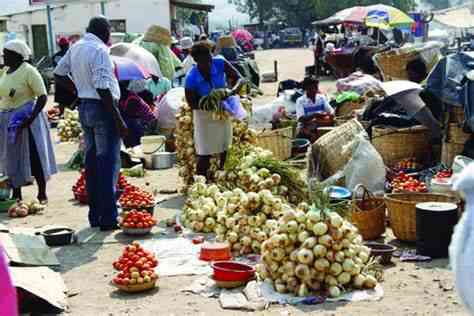
The past week has been marred by instability and confusion in currency markets after the Reserve Bank of Zimbabwe (RBZ) devalued the ZiG from US$1;ZiG14 to US$1:ZiG24,3. Business leaders and economists have warned the central bank about the impact of such shocks to the local currency given that it destroys monetary value and erodes public confidence.
Formal retailers have been hard-hit and some shops have imposed "one item per person" rules for products such as milk to fend off panic-buying triggered by a new loss of faith in the country's latest currency. These developments have largely culminated to uncertainty.
In our view, the lack of confidence in the ZiG is the number one culprit in as far as the instability in currency markets is concerned. The net-effect is that the disparities in official and parallel market exchange rates cause distortions and present room for arbitrage in the broader economy. We contend that the Zimbabwean situation demonstrates some of the defects of money in general.
Professor Coulbourn defines money as a means of valuation and of payment in terms of the unit of account and exchange. Sir John Hides (1967) says that money is defined by its functions, implying in simple terms, money is what money does.
Money is indeed a vital instrument in macroeconomic management given that it is crucial for growth and development.
However, some of the economic defects of money that are evident in the Zimbabwean context include the following;
Instability in the value of money
The value of money certainly does not remain stable over time. When the value of money falls, it implies a rise in price levels or inflation. On the contrary, a rise in the value of money means a fall in the price levels or deflation. These changes are brought about by an increase or decrease in the supply of money. Inflation or a fall in the value of money causes direct and immediate damage to creditors and consumers whilst deflation brings down the level of output, employment and income.
- Rampaging inflation hits Old Mutual . . . giant slips to $9 billion loss after tax
- Monetary measures spur exchange rate stability: RBZ
- Zim deploys IMF windfall to horticulture
- Banker demands $21m from land developer
Keep Reading
Black money
Money being the store of value lures people to hoard it. When people evade taxes and conceal their income and hoard it, it is black money. This leads to a “parallel” economy within the country, which encourages conspicuous consumption and speculation.
Clearly, there is a tendency within the general population to keep wealth in a relatively stable foreign currency. Amounts of local currency (ZiG) held are immediately converted so as to maintain purchasing power. Inflationary pressures cause deteriorating confidence in the currency in question. This is also evidenced by the stampede for foreign currency from every corner of the Zimbabwe economy given the need to preserve value. Foreign currency (particularly US dollars) is still considered a better store of value. Other alternatives include real assets such as property (stands and housing developments).
Another important dynamic is that Zimbabwe has largely adopted a dual-pricing regime where most products and services are priced in United States dollars. Local currency prices are in most cases pegged against a parallel market rate. Formal businesses such as Simbisa Brands and Delta Corporation have also resorted to USD pricing in a move that is meant to assist the companies meet foreign obligations and cover import bills. All in all, an important fact is that the Zimbabwean economy is largely informal. There has also been a proliferation of informal businesses triggered by limited economic opportunities, especially for youth.
This escalation of self-employment has led citizens to move into vending and unregulated businesses. These informal businesses also charge in foreign currency and operate without a fixed premise. This suggests a trend which signals a rapid rate of informalisation of the local economy. It is also very difficult for monetary authorities to police the exchange rate through statutory instruments.
Overall, as the scramble for US dollars and the tumbling of the ZiG continues, it would make sense for individuals, households and institutions to come up with concrete value-preservation strategies through bankable investment plans. We have consistently insisted investors to take positions in alternative investments that offer US dollar denominated returns.
On top of our list are (i) real estate projects in strategic sectors like tourism, (ii) international real estate opportunities, (iii) renewable energy projects linked to hard US dollar tariffs, and (iv) structured finance deals (commodities).
Matsika is a corporate finance specialist with SwitzView Wealth Management. — +263 78 358 4745 or batanaim@switzview.com.










